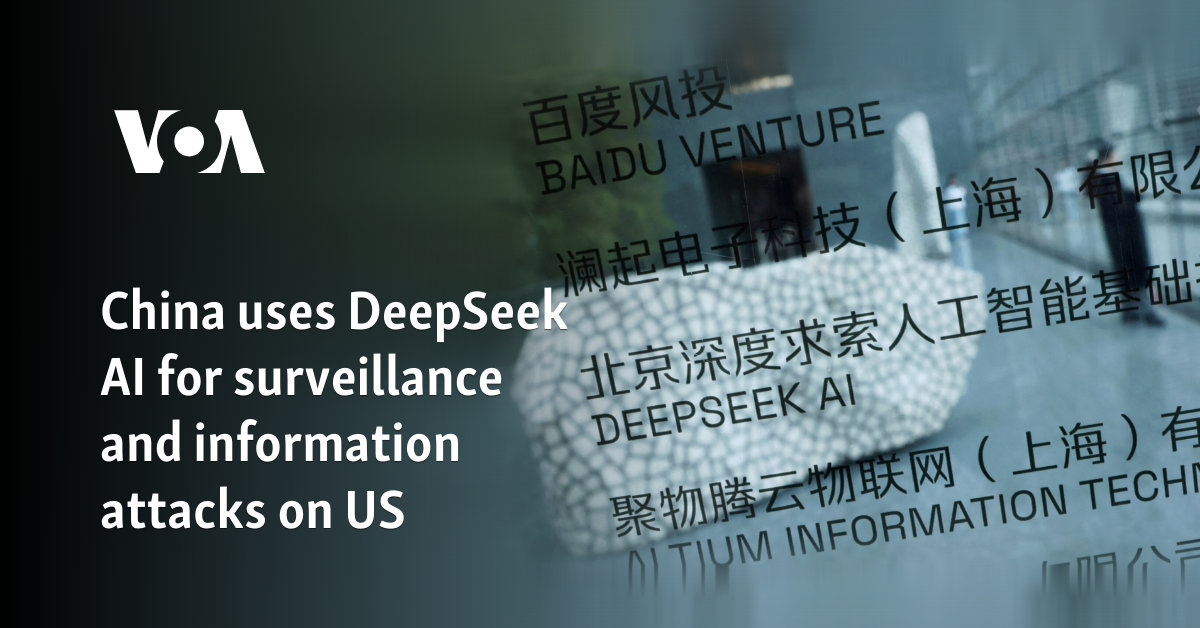China Employs DeepSeek and Other AI Models for Surveillance and Information Warfare Against the US

U.S. Moves to Ban Chinese AI DeepSeek on Government Devices
The United States is potentially taking a significant step by introducing a bill that may ban DeepSeek, an artificial intelligence product from China, on government devices. If passed, this would make the U.S. the second country, following Australia, to implement such a ban.
Bipartisan Bill Introduction
U.S. Representatives Josh Gottheimer and Darin LaHood have put forth a bipartisan bill aimed at restricting the use of DeepSeek within government networks. Their concerns center around the potential security risks that this AI could pose to sensitive government information, cybersecurity, and the privacy of American citizens. The Congress members recently reached out to 47 governors and the mayor of Washington, articulating the potential dangers associated with DeepSeek.
The Nature of Concerns
Experts and lawmakers have expressed valid concerns regarding DeepSeek and its possible implications for national security. The Chinese government has a history of employing AI for mass surveillance activities, which includes the gathering of biometric data and monitoring social media. Such operations allegedly support China’s security apparatus and military initiatives, especially concerning overseas Chinese dissidents.
In fact, several Chinese companies known for surveillance and security, such as TopSec and QAX, have announced their plans to incorporate DeepSeek into their services. These companies have established ties to the Chinese government, leading to further apprehension among U.S. officials.
DeepSeek’s Data Sharing Issues
In January, a Canadian cybersecurity firm, Feroot Security, discovered troubling issues within DeepSeek’s login protocols. The research indicated that user information could be shared with China Mobile, a state-owned telecommunications entity. This revelation is particularly alarming, given that the U.S. had previously banned China Mobile in 2019 due to concerns of it being a national security threat.
Misuse of AI for Cyber Attacks
Reports indicate that actors from China have been leveraging both DeepSeek and ChatGPT models to execute phishing scams and disinformation campaigns targeting the United States. The organization OpenAI expressed that they had taken measures to block several accounts that were involved in such activities. Some of these accounts were identified as entities designed to monitor discussions around Chinese politics and human rights on platforms including X, Facebook, and Reddit.
The objective of this operation seemed to focus on providing insights to Chinese authorities, which could assist in monitoring protests and public sentiment in various countries, including the U.S., Germany, and the U.K.
Spread of Disinformation through Media
Chinese influence operations have also extended into Spanish-language media across Latin America and Spain. One of the actors involved, Jilin Yousen Culture Communication Co., which has ties to the Chinese government, has been linked to the dissemination of articles that portray critical narratives about the U.S. These articles address a spectrum of topics, ranging from human rights violations and U.S. foreign policy issues to domestic social challenges.
For example, a piece in Mexico’s El Universal criticized U.S. actions regarding sanctions on Iran, suggesting these actions signify American impotence in global politics. Similarly, articles in Peruvian media highlighted socio-economic issues in the U.S., such as homelessness and child nutrition, framing them as severe problems exacerbated by governmental neglect. By presenting these topics in a particular light, these AI-generated articles align with China’s broader narrative strategy.
Broader Implications
The ongoing discussions surrounding DeepSeek and its effects on cybersecurity have far-reaching implications. They highlight not only the technological vulnerabilities that nations can face but also the role of artificial intelligence in shaping public discourse and influencing perceptions across borders. With the potential banning of Chinese technology such as DeepSeek, the U.S. underscores its commitment to national security and the protection of its citizens’ rights. Such measures may affect international relations and the landscape of global technology competition.






